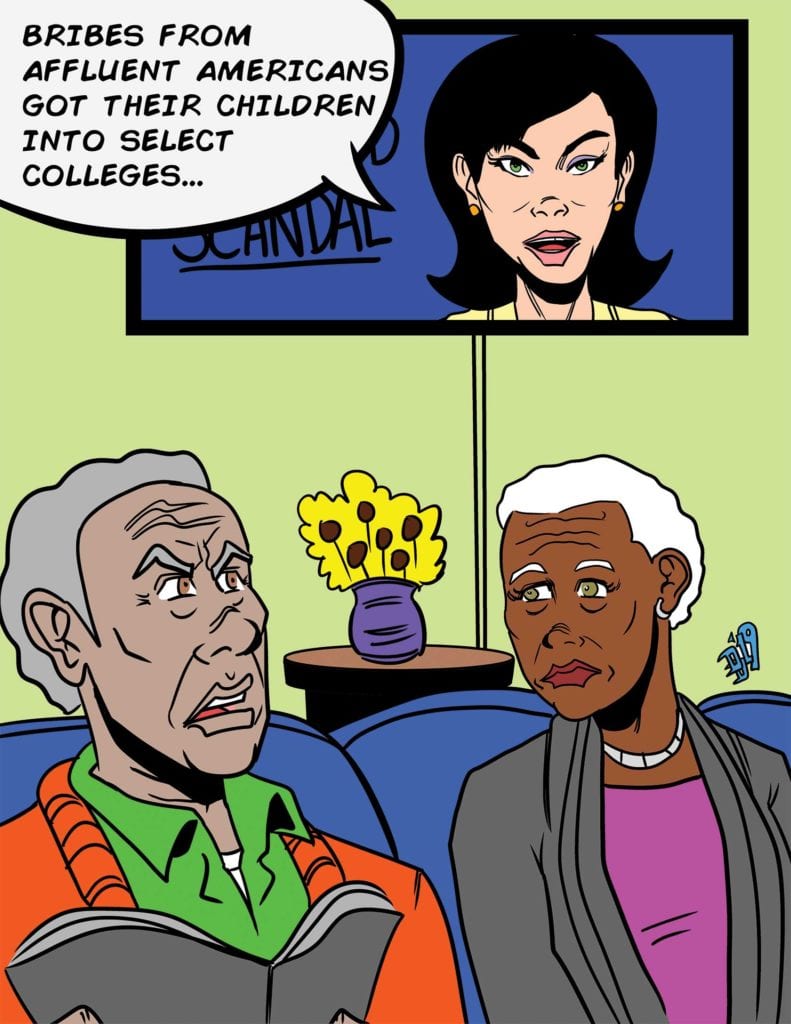
African American parents often advise their children that they will have to work much harder than whites in order to achieve. That is the older generation’s way of preparing their progeny for the unfair treatment they will encounter in society. Consequently, the scandal of bribery admissions to select universities came as no surprise to blacks, but the brazenly fraudulent strategies to enter colleges has shocked many middle class whites.
According to a 2016 study by the PEW Research Center, almost eight years after Barack Obama became president, blacks and whites still have substantially disparate perceptions about how they are treated in society. An estimated 64 percent of blacks say that they are treated less fairly than whites in the workplace, while only 22 percent of whites believe this is true. And 84 percent of blacks believe that they are treated more unfairly than whites when dealing with the police, but only 50 percent of whites agree.
White privilege seems to emerge among college educated whites. Their race is cited as an advantage for 47 percent of white college graduates. However, the study indicates that this racial advantage declines for the less educated. Only 31 percent with just some college education acknowledge a white advantage and only 17 percent of high school graduates or drop outs express having a white privilege.
Many African Americans already feel that they are mistreated at work and in dealings with the police so they would more than likely expect to be mistreated in college admissions were it not for affirmative action policies. However, middle class whites who are aspiring to attain the American Dream should be offended by this denial of fair treatment. With white privilege they do not expect to be victimized.
The brazen effort of those in the top 1 percent to buy their children into major universities could contribute to a greater dissatisfaction with the nation’s widening income gap. Even those who enjoy white privilege but are not at the upper income level might push for greater equality. To all but the morally afflicted, the college entrance fraud was more than a PR disaster. It enabled the well-to-do who were rejected to experience perhaps for the first time what rank inequality is like.






